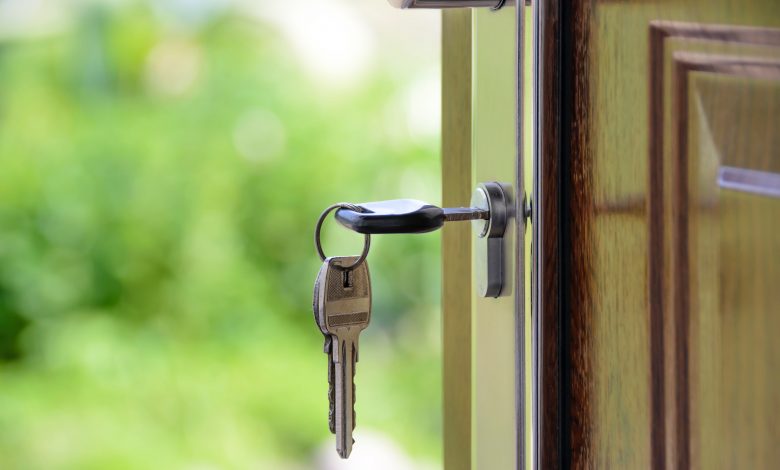What Credit Score Do You Need to Buy a Home?

If you are planning to get a home loan, often called a mortgage, then you need to know your credit score and be prepared for it to see some scrutiny. Lenders use this number, along with other information from your credit history, to determine if you qualify for a mortgage loan. What is a good credit score to buy a house? Chance are, you are going to need a FICO credit score of at least 500 to qualify for a loan through the Federal Housing Administration. There are other programs out there, but they can require even higher FICO scores, such as 620 or better.
The Minimum Score Needed for a Mortgage
Credit score requirements to obtain a mortgage loan can vary based on the type of loan you want and the lender. You can find four common types of mortgages, including:
- Veterans Affairs Loans
- US Department of Agriculture Loans
- Federal Housing Administration Loans
- Conventional Loans
The USDA, VA, and FHA loans are mortgages that are backed by the government. You can get a loan from any approved lender, and the government is going to guarantee it for the bank. Conventional loans aren’t associated with any government program. Instead, it’s a normal mortgage product.
The credit score requirements for an FHA loan are more clear-cut in regards to the minimum score you need. You have to have a FICO credit score of either 500 or 580 for an FHA loan. The number you need is based on the down payment you can afford. If you can afford a 10% down payment, your credit score has to be 500. If you only have 3.5% down, you need 580.
With USDA, VA, and conventional loans, there is no firm score you need. Still, lenders usually expect you to have a FICO score of 620 or better. For a VA loan, you can have scores as low as 580, in some cases. The USDA loan is different in that you have to qualify by buying a home in a rural area. Sometimes, the lender wants you to have a higher score of 640 as well.
There’s no universal credit score required for a mortgage. Though lenders do differ, many of them require a score of 620, and 580 is the lowest score possible for almost all situations.
On the other end of the spectrum, loan applicants might need a higher score if they want to qualify to get a jumbo mortgage. This exceeds the normal dollar amount limits that are set for a conforming loan by Freddie Mac and Fannie Mae. Generally, most states have jumbo loan mortgages that are over $484,350; therefore, you are likely to require a credit score of at least 680 and maybe more.

What Credit Scores Do Most Mortgage Lenders Use?
Now, you need to know which scores mortgage lenders often use. Many times, they look at your FICO score to see if you qualify for a mortgage. Generally, FICO credit scores have five factors that they are based on, and each one has a different consideration weight. They include:
- Credit utilization: 30%
- Payment history: 35%
- Credit mixture: 10%
- Credit age: 15%
- New credit inquiries: 10%
You should also be aware that mortgage lenders don’t pull one single FICO credit score. They often pull scores from all three of the major credit bureaus: TransUnion, Experian, and Equifax.
When a lender pulls your credit score from each bureau, it can decide which one it is going to use to gauge whether or not you qualify for a home mortgage loan. Some programs and lenders drop your highest and lowest scores to use the middle one in determining if you meet the requirements for the type of loan for which you apply. Therefore, if you have a score of 680, 620, and 640, the lender uses the 640 score most when determining your qualification for a mortgage.
What Is a Good Credit Score for Buying a House?
While you may want to know the perfect credit score for buying a house, it can vary depending on the lender you choose. A good credit score is between 670 and 739. If you are in that range or higher, you are likely in a good position to get favorable interest rates and better loan terms on your mortgage. Still, a good score doesn’t give you an automatic ‘in’ for a home loan.
As a borrower, you need to keep in mind that there are other factors at play than just a qualifying score. Lenders look at your cash reserves, the amount of debt you currently have, and other assets that could affect your ability to qualify for a loan. Yes, a credit check is required when you apply for a loan. However, lenders also take into consideration:
- Your business profits and losses, if you own one
- The amount of money saved in investment and savings accounts
- Your tax return information for the last two years
- Your employment income and history
- The debt-to-income ratio is that percentage of your income that you use for debt repayment each month
- The down payment
- Any past negative history, such as charge-offs, bankruptcies, and delinquencies
Why Your Credit Score Matters When Getting a Home Loan
There is a simple reason that lenders evaluate your full credit history when you try to buy a house. Your credit score is an indication of risk. To most lenders, a low score equals a higher risk for them.
If you are perceived as a higher risk to a lender based on your credit score, this doesn’t mean that you are banned from getting a mortgage, as the FHA loan has demonstrated with its lower score requirement. Still, you must be prepared for the way lenders are going to translate the cost of you borrowing money to buy a house.
The first effect of you buying a house with a credit score that is lower than average is its impact on the interest rate you are going to pay. More specifically, you can expect to pay more interest over the lifetime of the loan if you have a low credit score. Often, lenders look at the credit score as an indication of your likelihood to pay the loan back. As a result, they are going to ask a borrower with a low credit score to pay more money if everything is equal.
Even just a fractional difference in interest rates can make a big difference in the interest rate and amounts you pay with time. For example, you take out a loan for $250,000 on a 30-year term and get an interest rate of 4%. In a sense, you are going to pay about $179,674 for interest charges. Now, if you get the same loan and terms but with a 4.25% interest rate (from having a lower credit score), you can expect to pay $192,746 in interest for the life of the loan. The difference of $13,072 is a lot of extra money.
Having an interest rate that’s higher means that you pay more each month. This is an issue because it could lower the price of the home that you can realistically afford. Another side effect of having a low credit score while trying to buy a home is that you have more limited options for getting a mortgage. For example, if you have a score lower than 620, you might not be eligible to get a mortgage through the USDA and VA programs. Plus, you might not qualify for a conventional loan, either.
It’s true that FHA loans can make it more accessible for you to own a home if you have a low credit score and a small down payment, but there are still some drawbacks. You could be required to pay a mortgage insurance premium over the life of the loan if the down payment is small. This adds more to the cost of buying the house. Also, FHA loans are more limited because you have to meet the property standards while conforming to the loan limits. Because of these requirements, you could be at a disadvantage if you find yourself in a competitive bid situation.

Become Credit-Ready for Your Mortgage
What is a good credit score for getting a mortgage? You have learned that it is anywhere from 580 to 640, depending on the lender and other factors. The best thing you can do for yourself is to know what score you need and what you currently have.
You can check your credit score through a variety of free websites and the three credit bureaus. Make sure all of the information is accurate, and check your score. If it’s low, consider improving it with these steps before applying for a mortgage:
- Check your credit score often through your bank, a credit card issuer, or elsewhere.
- Pull all of your credit reports; you can do this directly from the credit bureaus.
- Review these reports for any errors, disputing any that you find.
- Try not to fill out any applications for credit (credit cards and the like) for about three to six months before you apply for a mortgage. These inquiries can be shown as a hard inquiry, which knocks points off of your score.
- Make sure that you pay all of your bills on time. Consider using calendar alerts to remind you of due dates, or sign up for automatic payments through your issuer.
- If you carry a lot of debt right now, work on paying it down or off.
- Keep your oldest accounts in good standing and don’t close accounts with a balance.



